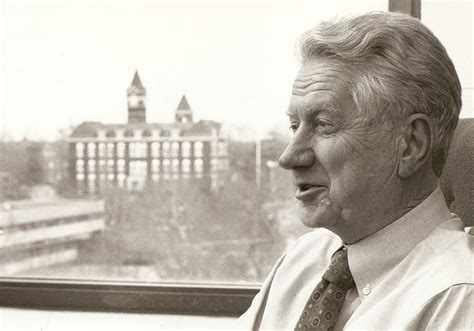A Quote by Surya Das
So we're all living spirit. It's not about isms and schims or religions. Religions are almost like political institutions, but the heart of it is the spirituality.
Related Quotes
All religions are equal to me. And all castes and creeds are dear to me. But though I appreciate all `isms,' religions and political parties for the many good things they seek to achieve, I do not and cannot belong to any of these `isms,' religions or political parties, for the Absolute Truth, while equally including them, transcends all of them and leaves no room for separative divisions which are all equally false.
All religions are not the same. All religions do not point to God. All religions do not say that all religions are the same. At the heart of every religion is an uncompromising commitment to a particular way of defining who God is or is not and accordingly, of defining life's purpose.
Anyone who claims that all religions are the same betrays not only an ignorance of all religions but also a caricatured view of even the best-known ones. Every religion at its core is exclusive.
The religions are the buildings or the institutions, the groups, but inside of that is what moves, is what's alive, is the beating heart of spirituality, and really, the heart's blood is the mystical experience. Not airy fairy vague mystical experience, but transformative, intimate experience that really touches your heart with love, and not just sex.
If we live in our oneness-heart, we will feel the essence of all religions, which is love of God. But if we live in the mind, we will only try to separate one religion from another and see how their ideologies differ. It is the heart that can have a true intuitive understanding of the height and breadth of all religions. It is the heart that sees and feels the inner harmony and oneness of all religions.
The way of presentation is different according to each religion. In theistic religions like Buddhism, Buddhist values are incorporated. In nontheistic religions, like some types of ancient Indian thought, the law of karma applies. If you do something good, you get a good result. Now, what we need is a way to educate nonbelievers. These nonbelievers may be critical of all religions, but they should be decent at heart.
[Giving] is the essence of the great religions of the world - whether you are discussing the Muslim, Hindu, Jewish or Christian religion. It is an essential fundamental principle of all religions, whatever stage of development a society has reached, to sympathize with others and to promote that spirit of equality.
In the mystic traditions of the different religions we have a remarkable unity of spirit. Whatever religion they may profess, they are spiritual kinsmen. While the different religions in their historic forms bind us to limited groups and militate against the development of loyalty to the world community, the mystics have already stood for the fellowship of humanity in harmony with the spirit of the mystics of ages gone by.
Most of the founding fathers, sympathetic with and influenced by the European Enlightenment, saw religion - natural religion, that is - as a potential good, but with equal clarity they saw the religions of existing institutions and religions based on a fixed scriptural revelation as meddlesome, wrong-headed and hopelessly obsolete.
I have always marveled that so many religions exact such revenge against dissenters. It only weakens the appeal of their faith and contradicts any claims they might have made that 'all religions are basically the same.' If all religions were indeed the same, why not let someone be 'converted' to another religion?
If the believers of the present-day religions would earnestly try to think and act in the spirit of the founders of these religions then no hostility on the basis of religion would exist among the followers of the different faiths. Even the conflicts and the realm of religion would be exposed as insignificant.
Many people entertain the idea that Christianity,like almost any other religion,is basically a system of beliefs-you know, a set of doctrines or a code of behavior, a philosophy, an ideology. But that's a myth. Christianity is not at all like Buddhism or Islam or Confucianism. The founders of those religions said (in effect), 'Here is what I teach. Believe my teachings. Follow my philosophy.' Jesus said, 'Follow me'(Matthew 9:9). Leaders of the world's religions said, 'What do you think about what I teach?' Jesus said, 'Who do you say I am?'(Luke 9:20)





































